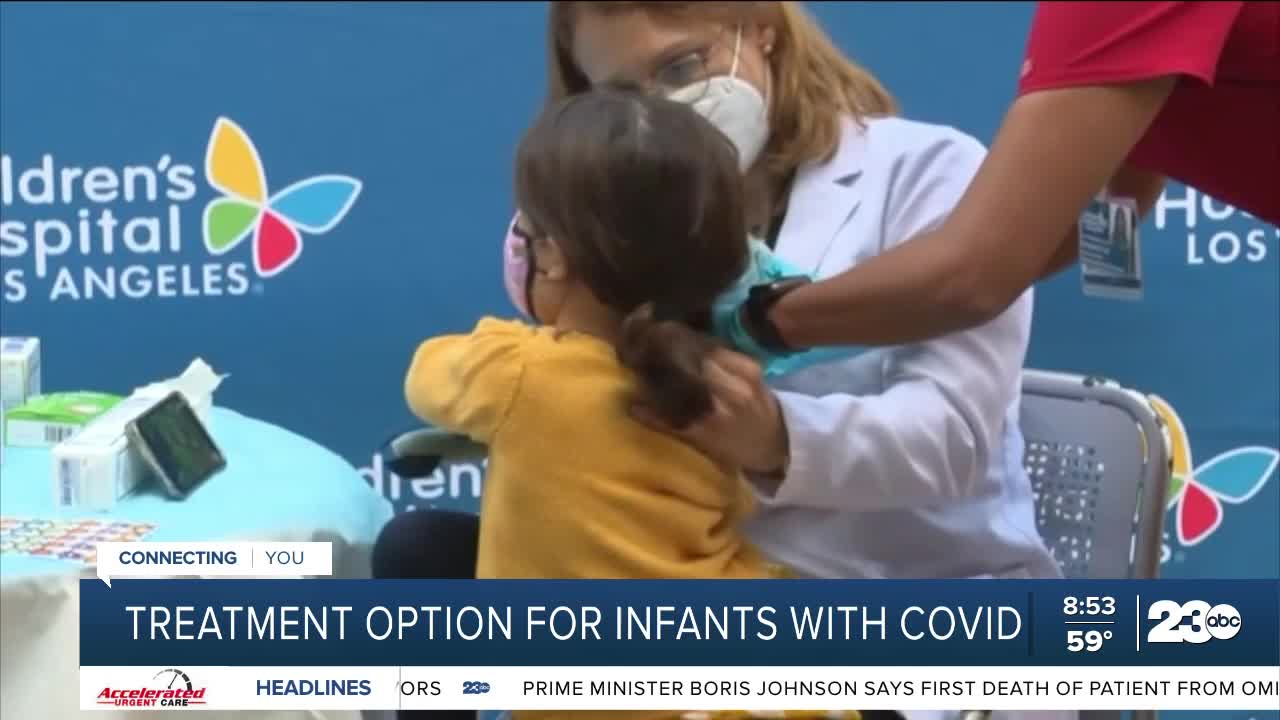BAKERSFIELD, Calif. (KERO) — We have heard of monoclonal antibody treatments for adults, but now newborns who contract a severe case of COVID can now also get treated this way.
Monoclonal antibody treatments for COVID are antibodies that are created in a lab that are then infused into the body through an IV. Unlike a vaccine that triggers your body to create antibodies against COVID, these are directly transferred into your body which is why, according to doctors, the body reaction is typically a bit faster.
What is monoclonal antibody IV therapy?
Before explaining monoclonal IV therapy for Covid-19, it’s important to first understand how the body’s immune response works. The body’s primary defense system uses antibodies to fight infection (including viruses, bacteria, and other foreign biomolecules). When an infectious agent enters the body, it produces specific antigens (proteins) unique to its DNA makeup.
The body detects these antigens and produces antibodies specific to that antigen that flood the body and hunt down the infection, either killing or incapacitating it.
The main challenge with natural immunity is a steep learning curve between when the body first detects the infection and when it can mount a formidable defense. If someone is at risk of falling seriously ill from a disease, they might not survive this learning curve. Monoclonal antibody (mAb) therapy is one way to help the body skip the training and head straight to the battlefront.
- Source: Drip Hydration
As newborns are still developing their immune systems, many face a higher risk of contracting COVID-19. The cases are often very mild, but for those who do develop strong symptoms this monoclonal treatment brings hope.
Dr. Karen Dahl is vice president of Valley Children's Healthcare, as well as a pediatric infectious disease specialist, and medical adviser for the healthcare network’s COVID-19 response team.
"It is very rare, but when it is your child it doesn’t matter how common it is, or how rare it is. So, we have seen very young children and newborns with COVID and some significant illnesses but very uncommon."
The FDA’s director, Patrizia Cavazzoni, said in a statement: “Children under one year of age who are exposed to the virus that causes COVID-19 may be at particularly high risk for severe COVID-19 and this authorization addresses the medical needs of this vulnerable populations.”
Before this treatment was approved, the chief medical officer for Mercy Hospitals, Dr. Hemmal Kothary, said with no treatment or vaccine approved, it was often a waiting game with newborns or infants who contracted COVID.
"In the past what we did is we used to do what is called supportive care. We used to give them oxygen if they needed oxygen. We used to give them fluid if they needed fluids. And now we can do all of that plus we can give them this treatment as well. So it is just something else we have in our arsenal now."
However, even if the child or newborn does contract the virus, not all will be eligible for the treatment.
"So, it is an option for those younger kids who have some risk factors for this disease. So again, not every 3-year-old who gets infected with COVID need this therapy, but a 3-year-old who has a g tube certainly we would want to consider for this therapy."
Dr. Dahl added this is a post-COVID treatment that can only be used if it is detected early. They cannot use the treatment if the patient is already hospitalized. That is why vaccines are still the best option against COVID.
"This treatment doesn’t replace getting vaccinated, right. That is still our focus," said Dr. Kothary.
Dr. Dahl and Dr. Kothary both note this just gives an option for children who for one reason or another cannot yet get vaccinated or have a low immune system where they need the extra boost of antibodies. Like vaccines, the treatment is paid in full by the federal government but regular hospital fees do apply.




